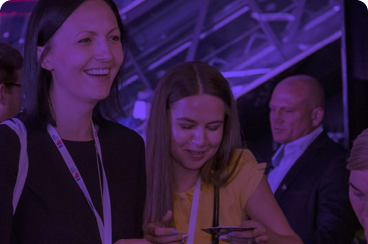75% of Europeans surveyed would choose today’s experience of the internet over an internet without targeted ads, where they would need to pay to access most sites and apps
Brussels, Belgium, 23 April 2021 - Amid critical EU policy discussions about the future of Europe’s digital economy, new research commissioned by IAB Europe has revealed Europeans’ strong appreciation of how advertising enables the internet they use every day. And the reality is that the internet they value - the diverse universe of small publishers and other content and services, beyond closed self-sustaining digital ecosystems, that we all consult dozens of times per day - needs targeted ads alongside non-targeted or “contextual” ones.
Study surveyed 2400 adults in six European countries
IAB Europe, the European-level association for the digital marketing and advertising ecosystem, commissioned a survey research of a sample of over 2, 400 adult internet users across six European territories: Germany, France, Spain, Sweden, Poland and the UK. The study explored how users would respond to a commercial model for the internet based on paying subscriptions to access sites and apps, rather than those sites and apps being funded by advertising, including targeted ads, which are the most effective and sought-after form of digital advertising.
Europeans appreciate how advertising enables the Internet
The results are a snapshot of user sentiment in some key markets, highlighting user reluctance to pay money for online content and services, even for content they acknowledge is important. A subscription-based commercial model for the internet would translate into most European citizens immediately reducing their internet activity to a significant degree, likely choosing to use only a handful of sites or apps.
A subscription-based model would create a fragmented, multi-tiered internet, with citizens having differentiated access to news, information and services depending on their willingness and ability to pay. It would leave news publishers, app developers and other content and service providers competing for funding from a very narrow pool of subscribers, undermining their capacity to make the R & D investments that lead to innovation.
Close to half of European surveyed (45%) describe news outlets as ‘very important’, but only just over a quarter (28%) would be prepared to pay for them. This puts the sustainability of the media into perspective. The publishing sector has already been challenged for years now, due to a fundamentally altered digital environment. The fragile revenues of the publishing sector, so dear to the European demos, must not be further put to the test.
Given the choice, the overwhelming majority of Europeans surveyed would choose the current commercial model of the internet over an alternative where subscriptions replace advertising. This isn’t just a more effective way to fund the internet. More Europeans find advertising useful than resent it:
“For most Europeans, unrestricted access to information and other valuable online services would simply cease”, noted IAB Europe CEO Townsend Feehan. “Content and service providers would find themselves competing for a limited pool of paying subscribers, with knock-on effects on competition and innovation”.
The diverse universe of online publishers and service providers, beyond closed self-sustaining digital ecosystems, that Europeans consult every day cannot compete effectively for advertiser spend without being able to offer the ability to target the specific audiences advertisers are trying to reach. Targeting enables generalist news sites and services to compete with the large players and continue to produce valuable content for people instead of content for advertisers. The regulatory framework that emerges from the DSA, DMA and ePrivacy negotiations over the coming months needs to reflect this reality.
“There is a complete disconnect with the policy discourse in Brussels”, noted Feehan. “Paying for content instead of seeing ads is a trade-off that European citizens have no interest in, responding to a problem they don’t recognise, and it would be forced on them against their will.”
To download the full report, What Would an Internet Without Targeted Ads Look Like? visit IAB Europe's Knowledge Hub.
